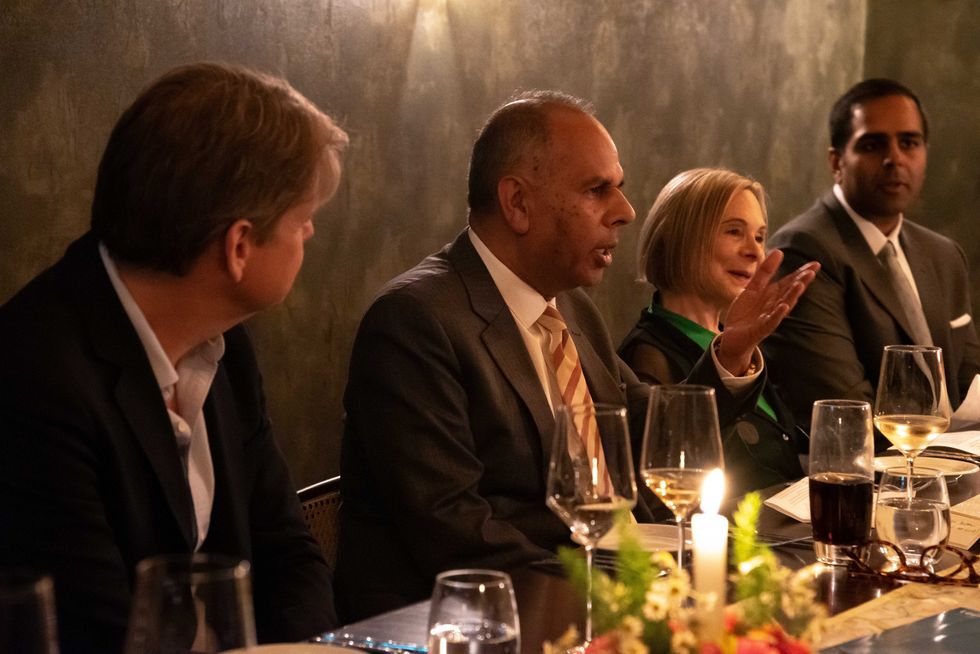US senator Kamala Harris held just one public event this week during her third trip to Iowa since joining the contest for the 2020 Democratic presidential nomination, a town hall at the University of Iowa where she talked about her plan to raise teacher pay.
Harris, formerly California's top prosecutor, spent most of her two-day visit at private gatherings aimed at securing early support from specific constituencies - women, state lawmakers and educators.
Iowa hosts the first presidential nominating contest in February 2020, and Harris' early strategy in the farming state is considerably different than the traditional barnstorm politicking by some of her Democratic competitors.
Former Texas congressman Beto O'Rourke, for example, went to 23 events across 10 counties on his second trip to Iowa. US senator Cory Booker of New Jersey attended 14 events in 11 counties during two visits, with a third scheduled next week.
Harris' campaign thinks its targeted approach will allow her to build momentum in Iowa, while freeing up resources to invest more heavily in the path they see as crucial to her winning the Democratic nomination: California and the US South.
"Organizing looks very different right now than it will look a year or even six months from now," said Miryam Lipper, Harris' Iowa spokeswoman. "Right now we're focused on introducing Kamala to Iowans and engaging with potential supporters in a smart way."
Harris' tactics carry some risk. Iowa voters play an outsized role in picking US presidents, and many have come to expect frequent face time with White House hopefuls.
Harris aides say it is early in the race, and there could come a point when she crisscrosses Iowa's 99 counties.
However, Iowa likely will award just 41 of about 3,800 delegates available to win the Democratic nomination. While the campaign aims to do well there, aides say they do not think a first-place finish is as critical for Harris as it might be for other candidates needing a break-out moment.
Early opinion polls show Harris in the top tier of more than 18 Democrats who have announced campaigns or are expected to. Harris, 54, supports a middle-class tax credit, Medicare for All government health insurance, the so-called Green New Deal proposal on climate change and the legalization of marijuana.
Joshua Putnam, a professor at the University of North Carolina Wilmington who specializes in political primaries, said a candidate in Harris' position needs to meet expectations in Iowa and the subsequent New Hampshire primary to remain viable for the strategy to work.
"They likely do not need outright wins in either of the first two states, but that is not the only type of winning. One can win or lose relative to expectations as well," Putnam said.
'CAMP KAMALA'
Harris' strategy was on display this week as she courted groups with the potential to influence their friends and neighbors.
She met with Democratic state legislators on Thursday ahead of their session ending in May, when they will leave Des Moines and return to their districts. She secured her first endorsement from a party activist in Iowa before a house party hosted by members of a group that encourages women to run for office.
Harris told the women the 2016 election of president Donald Trump, the likely Republican candidate in 2020, was an "inflection point" in US history.
"This is a moment in time that is requiring each of us as individuals and collectively to look in the mirror and ask a question ... who are we?" Harris said at the gathering. "And part of the answer to that question is we are better than this. So this is a moment in time then that we must fight for the best of who we are."
Next week, Harris' campaign is hosting "Camp Kamala" to educate college students about Iowa's complex caucus process and her candidacy before they fan out across the state and the rest of the country for their summer break.
While she is not ceding Iowa by any stretch, Harris' delegate strategy begins in earnest in Nevada and South Carolina, which hold the third and fourth nominating contests.
Harris aides say they expect to do well in Nevada and believe it is important to have a strong showing or win in South Carolina, the first contest with a sizeable percentage of black voters. Harris, the daughter of immigrants from Jamaica and India, would make history as the first black woman to gain the nomination.
Her performance on so-called "Super Tuesday" in early March, when at least a dozen states will award about 40 percent of the delegates, will be critical, her campaign acknowledged.
The southern states of Alabama, Arkansas, North Carolina, Tennessee and Virginia hold their nominating contests on Super Tuesday, as do delegate-rich Texas and California. Harris has already visited Texas, which will award more than 260 delegates, and California, where she has won statewide races three times, will award at least 475.
Her campaign aims to invest as heavily in these states as they can, aides said.
Jean Hessburg, the Iowa activist who endorsed Harris this week, said caucus goers understand "this is a marathon and not a sprint." Candidates making dozens of stops across the state risk spreading themselves too thin, she added.
"By doing these targeted events, the idea would be it's more memorable," said Hessburg, who leads the Women's Caucus for the Iowa Democratic Party.


















 The event was hosted by Kalpesh Solanki, Group Managing Editor of Asian Media Group and President of the 100 Club.
The event was hosted by Kalpesh Solanki, Group Managing Editor of Asian Media Group and President of the 100 Club.